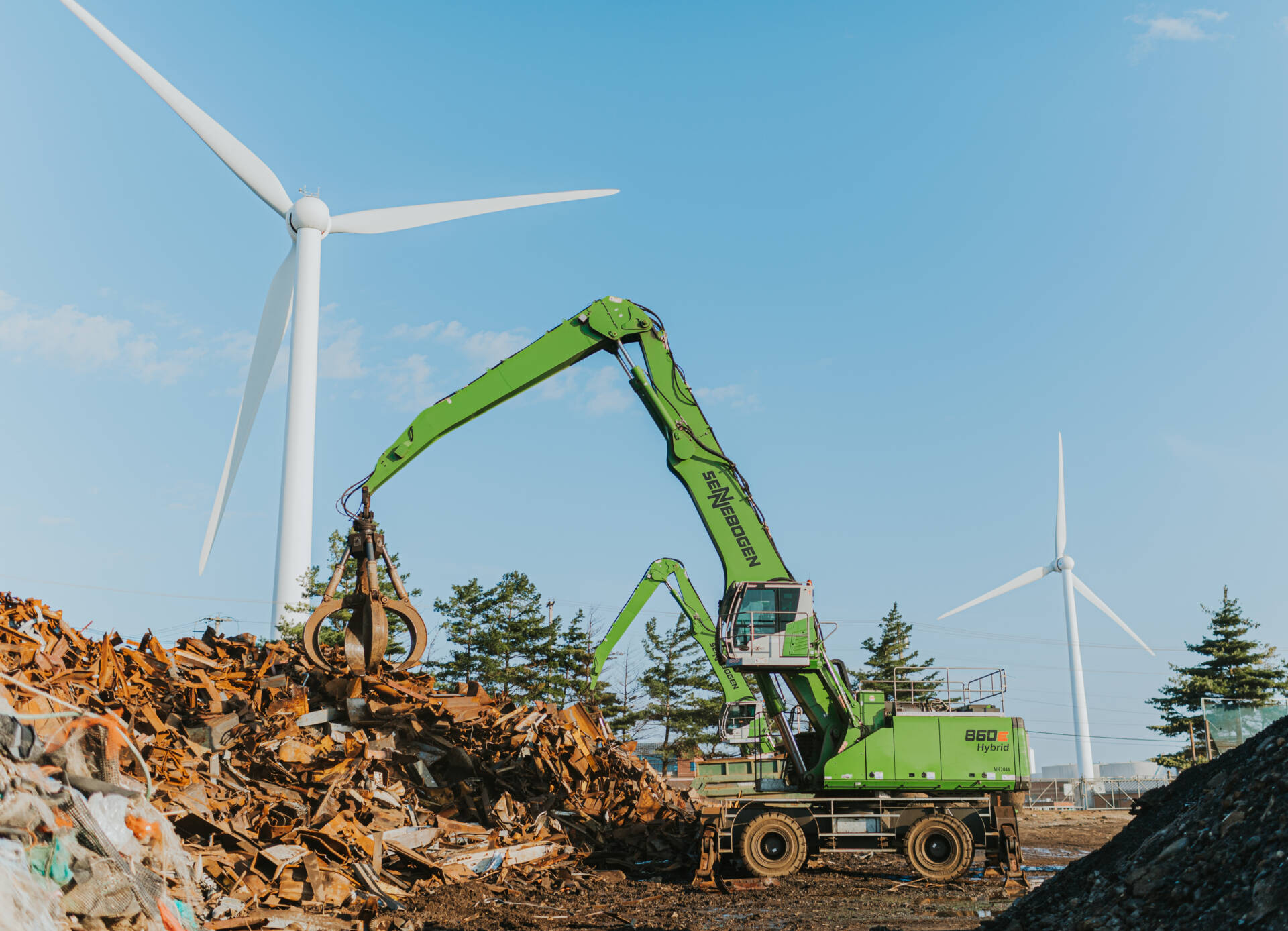The Home Depot is getting closer to realizing a circular economy with a little help from some friends, of course.
When we made circularity a pillar of our Eco Actions, we committed to supporting a world without waste, where every product is reused rather than rely on ever-growing landfills. When The Home Depot has recyclable material, they call on Radius Recycling Industries to take it off their hands and make it into something new. Recently named one of the 100 Most Influential Businesses by TIME, Radius Recycling is a global leader in recycling, with facilities across the country. Although metal is in their name, they take a wide variety of recyclable materials. Their commitment to sustainability made them a natural partner for Home Depot.

So, how does the cycle begin? When The Home Depot has a bundle of recyclables that cannot be donated or otherwise reused, Radius Recycling takes it and sends it to their metal reclamation facilities, or MRFs. (These are also known as Material Recovery Facilities.) There, the materials are meticulously separated into different types – ferrous metals, nonferrous metals, plastics and more – using magnets, eddy currents, manual separation and other methods. The recyclables are also cleaned to remove any contaminants that could interfere with the recycling process. Once everything is in place, the recyclables are bundled up and sold to brands that will then use the raw material to create new products. Through this process, Radius Recycling can divert valuable material from ending up in landfills.
This relationship has already yielded a significant win for Home Depot’s recycling goals. In 2022 alone, with the help of Radius Recycling, Depot recycled 138,700 tons of metal and 2,358,000 pounds of EPS foam. We’re proud to keep good material out of the landfill and in use, and we couldn’t do it without Radius Recycling. Though full circularity is still a long way off, Radius Recycling’s relationship with Home Depot is already bearing some fruit. If you’ve ever bought drainage piping with socks or pellets made with foam, you’ve purchased, in part, a circular product handled by Radius Recycling.
In this day and age, sustainability in manufacturing has never been more important. No company can do it alone, though, and it feels good to work with like-minded businesses to realize this goal. That’s why partnerships between businesses like The Home Depot and Radius Recycling are essential to making a truly circular economy a possibility.






